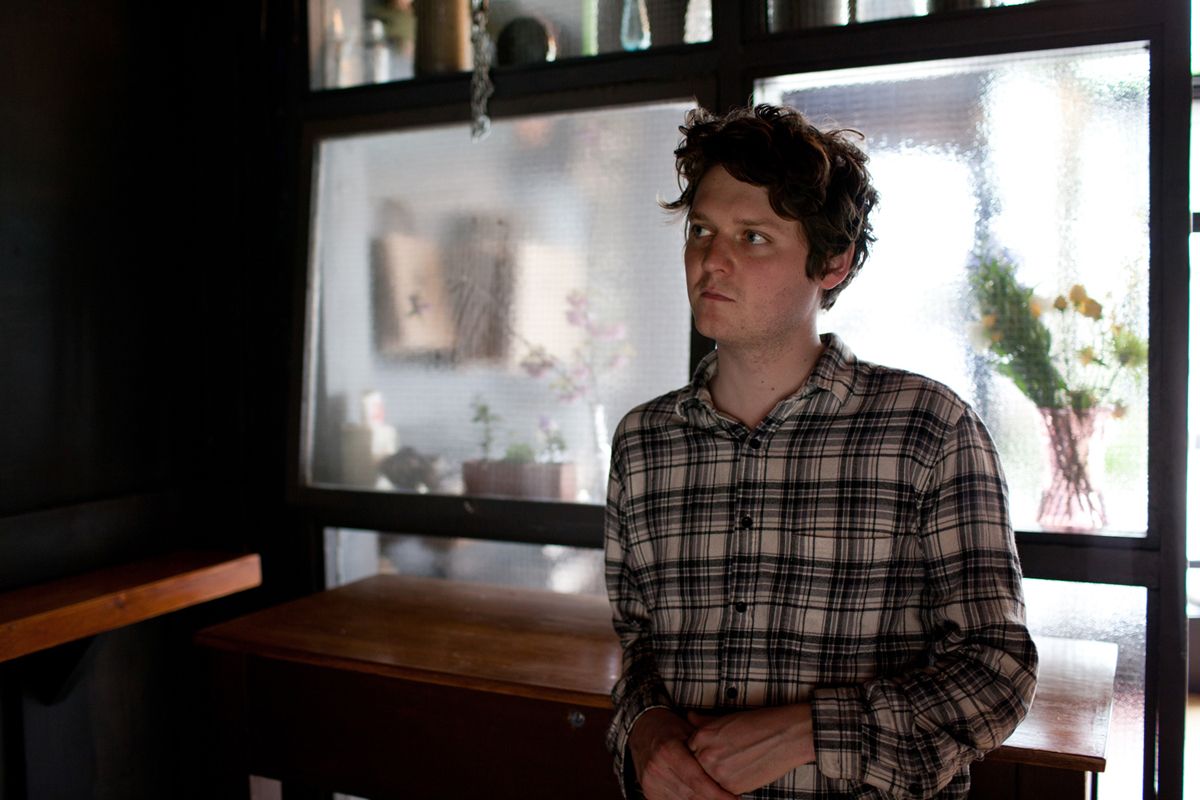Zach Condon is an unlikely heartthrob. The band he fronts, Beirut, features neither dance beats nor electric guitars, and sells neither sex nor rebellion; its main influences are French chanson and Balkan and Mexican folk music. Onstage, he moves little, playing trumpet and ukulele and singing in the theatrically melancholic baritone of a pre-rock 'n' roll crooner. And yet, when he steps up to the mic, young girls scream, white-haired folks beam and everyone thrusts their arms into the air.
Speaking over the phone from his hometown of Santa Fe, N.M., the tousle-haired 25-year-old Condon admits this kind of crowd reaction is common around the world -- and it leaves him happily baffled.
"It's crazy," he says. "When I started this project, I assumed that I always would have a lot of trouble at shows -- I never went to them or played them growing up. It's strange how important [they've] become for us … I go through phases [of] self-doubt and self-assuredness. I'd say I'm 80 percent of where I want to be."
And what could give him that extra 20 percent? "Maybe a more fully realized persona. But I dunno -- maybe people like the honesty. You want to change something, but you know in the back of your head that that might just take away from something else."
Having been catapulted to fame five years ago after releasing his first album, "Gulag Orkestar," Condon is still figuring out how to be comfortable as a star. His debut was essentially a solo project, recorded in his bedroom in his parents' house and named after a city he'd only fantasized about visiting. Inspired by Eastern European folk music he heard while traveling in France, he simulated the sound of a brass band by overdubbing his trumpet, and sang decadent, romantic lyrics. Taste-making website Pitchfork called “Gulag” an “impressive and precocious debut,” there was a bidding war for it in the U.K., and Condon found himself unexpectedly popular, especially in Europe.
"As a 19-year-old kid with a first album out, I was like, 'Fuck it. I'll tell them anything they want to hear.' And so all these myths developed. In Poland, they're convinced that [jazz guitarist] Eddie Condon is my grandfather. In France they believe that I lived there for seven years when I dropped out of school at the age of 13."
But Condon's life is full of so many surprising left turns, he doesn't really need to make up stories. When he was 14, he fell off a bridge onto a dry riverbed and broke his left arm; the resulting lack of mobility makes it tough for him to play the guitar -- hence the ukulele that helps define Beirut's sound. For his 2009 EP, "March of the Zapotec," he traveled to southwestern Mexico and hired a 17-piece funeral band to back him up. In Brazil, in the same year, he encountered a number of "Beirutando" cover bands that sprang up after his song "Elephant Gun" became the theme of a popular TV show there; some substitute the traditional cavaquinho for the ukulele. (Condon says he wouldn't be against the idea of collaborating with them, although, admittedly, "that's getting a little meta.")
It was while touring Brazil that the "catalyst moment" for his new album, "The Rip Tide," occurred: an accident on the beach left him with a punctured eardrum. He'd also developed a vocal polyp, but he kept playing live to positive reception, even though the music sounded "detuned and messed up" to him. "It was simultaneously ecstatic and super-depressing, and a lot to work through mentally ... I was like, 'Holy shit! I've been taken for the biggest ride of my life over the past five years, and it's time to get some control over this situation.'"
Condon decided to settle down: He bought a house in Brooklyn, got married, acquired a dog and wrote songs that dealt with the concept of home. He also shut himself off from constant media attention and the prodding of music writers who, he says, expected his album to be a reaction to what they had written about his last -- as if his career arc were "a critic party and I'm not invited."
"The Rip Tide" is short, focused, full of hooks, and occasionally humorous in a deadpan way, with a song like "Vagabond" poking fun at the prevalent perception of Condon -- which he himself has encouraged -- as a romantic wanderer. The new songs pull back more than his earlier work, often in order to swell up again, like the tide that gives the album its name. For inspiration, Condon looked back at work he'd done in the pre-Beirut years, looking for his "original naïve energy;" the standout song "East Harlem" emerges from this time before his every musical move was scrutinized intently by an army of bloggers -- or cover bands in Brazil.
Growing up artistically in public, says Condon, can be difficult. "There's a lot of precautions you should probably take if you're going to go down that route. I was a lonely kid, and I think that [success] is very affirming in a lot of ways, but it can make you a little oversensitive, and I never Google myself ... Still a lot to learn, but it's gotten better."
For now, he's looking forward to the challenge of playing Santa Fe next month -- a town that at first supported him and then, he says, "imagined we'd gotten very big heads. That was kind of a sad sensation because I wanted so much for the approval of my hometown. It's like a mildly disapproving parent. Keeps you in line -- probably a good thing."



Shares